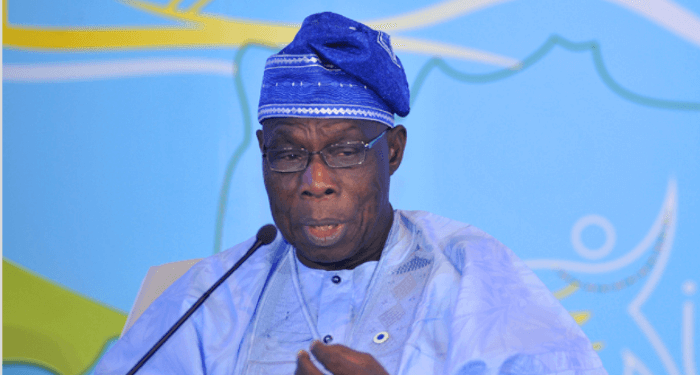Former Nigerian President Olusegun Obasanjo has reflected on his tenure, revealing how he elevated the nation’s foreign reserves from a mere $3.7 billion to $45 billion during his eight years in office. In an interview with News Central aired on Thursday, Obasanjo detailed the challenges he faced, including a staggering debt of $36 billion upon taking office in 1999.
Obasanjo emphasized the importance of persistent advocacy for debt relief from international creditors, which significantly reduced the country’s debt to approximately $3.5 billion by the end of his administration. “When I came in, we had a debt overhang of close to $36 billion. By the time I left, with the debt relief and clearing what we had to clear, the debt was about $3.5 to $3.6 billion. At the same time, the reserve that was $3.7 billion went to $45 billion,” he stated.
The former president also established the Excess Crude Account (ECA) to manage budget surpluses from crude oil sales, leaving a substantial $25 billion in the account. He explained, “We were conservative in the budget, allowing us to save the surplus in the ECA. When you add that to the reserve, we are talking of $70 billion.”
However, Obasanjo expressed dismay over the depletion of these funds in subsequent years. He noted that, as of 2024, Nigeria’s international debt has exceeded levels seen in 1999, attributing this to fiscal mismanagement and a lack of accountability. “I left in 2007, and today, 17 years later, all that amount of money has gone. We owe more now than we did when I came to government in 1999,” he lamented.
Obasanjo criticized the current state of leadership, describing it as plagued by “poor management of the economy, corruption galore, and a lack of consequences for wrongdoing.” He stressed the need for accountability to avoid the pitfalls of the past.
Nigeria is currently facing a severe fiscal crisis, exacerbated by rising debt and soaring debt servicing costs. By the second quarter of 2024, the nation’s debt had skyrocketed to N134.3 trillion, its highest ever. Additionally, the Central Bank of Nigeria (CBN) reported that the ECA now holds only $376,655, highlighting the country’s dwindling revenue prospects.
In response to these challenges, the current CBN Governor, Yemi Cardoso, is focused on rebuilding the country’s reserve base, with foreign reserves increasing to $39 billion and a target of reaching $40 billion by the end of the year. However, this recovery strategy has come at a significant cost, as it has led to reduced interventions in stabilizing the naira, which has sharply depreciated to N1,700 per dollar, making it one of the weakest currencies in Sub-Saharan Africa.
Obasanjo’s reflections serve as a stark reminder of the challenges Nigeria faces in managing its economic resources and the importance of sound leadership in ensuring sustainable growth for the future.








